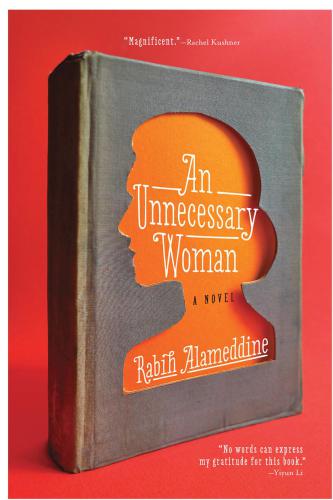
An Unnecessary Woman
A Novel
کتاب های مرتبط
- اطلاعات
- نقد و بررسی
- دیدگاه کاربران
نقد و بررسی

Starred review from October 14, 2013
Midway through Alameddine’s new novel, the narrator thinks: “There should be a literary resolution: No more epiphanies. Enough. Have pity on readers who reach the end of a real-life conflict in confusion and don’t experience a false sense of temporary enlightenment.” Like his previous novel The Hakawati, An Unnecessary Woman is set in Beirut, and this time the beauties and horrors of the city are seen through the eyes of Aalyia Sohbi, a 72-year-old translator who was born there and remained through the war. The elements that make up Aalyia’s chosen life are minimal: reading, translating, an apartment, and a single friend, dead long ago. Her habit of many years is to begin each new translation, according to a strict system, on the first day of the year. The solitude that allows for this work is precious, unusual, and precarious, and when it is threatened by the ongoing war and her patriarchal family, she answers with a machine gun. Alameddine’s most glorious passages are those that simply relate Aalyia’s thoughts, which read like tiny, wonderful essays. A central concern of the book is the nature of the desire of artistic creators for their work to matter, which the author treats with philosophical suspicion. In the end, Aalyia’s epiphany is joyful and freeing. Agent: Nicole Aragi, Aragi Agency.

Starred review from November 1, 2013
Seventy-two-year-old Beirut native Aaliya Sobhi, living a solitary life, has always felt herself unnecessary. The father who adored her died young, and her remarried mother focused attention on Aaliya's half brothers, leaving her to describe herself as my family's appendix, its unnecessary appendage, an attitude reinforced by her Lebanese culture. Divorced at 20 after a negligible marriage, she lived alone and began her life's work of translating the novels she most loved into Arabic from other translations, then simply storing them, unread, in her apartment. Sustained by her blind lust for the written word and surrounded by piles of books, she anticipates beginning a new translation project each year until disaster appears to upend her life. But these are just the bare bones of a plot. The richness here is in Aaliya's first-person narration, which veers from moments in her life to literature to the wars that have wracked her beloved native city during her lifetime. Studded with quotations and succinct observations, this remarkable novel by Alameddine (The Hakawati, 2008) is a paean to fiction, poetry, and female friendship. Dip into it, make a reading list from it, or simply bask in its sharp, smart prose.(Reprinted with permission of Booklist, copyright 2013, American Library Association.)

























دیدگاه کاربران